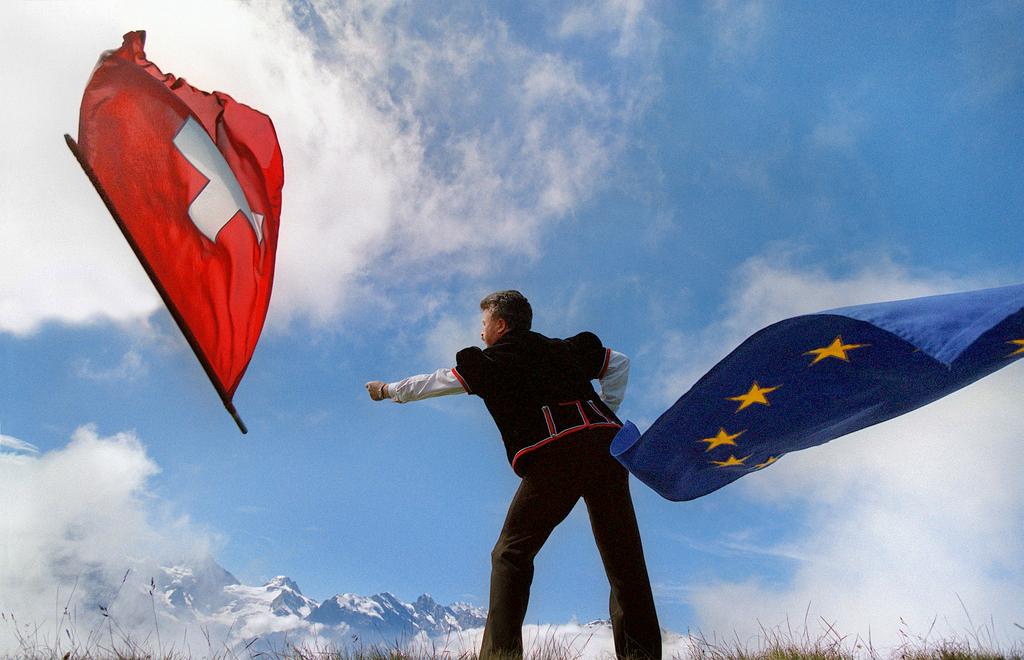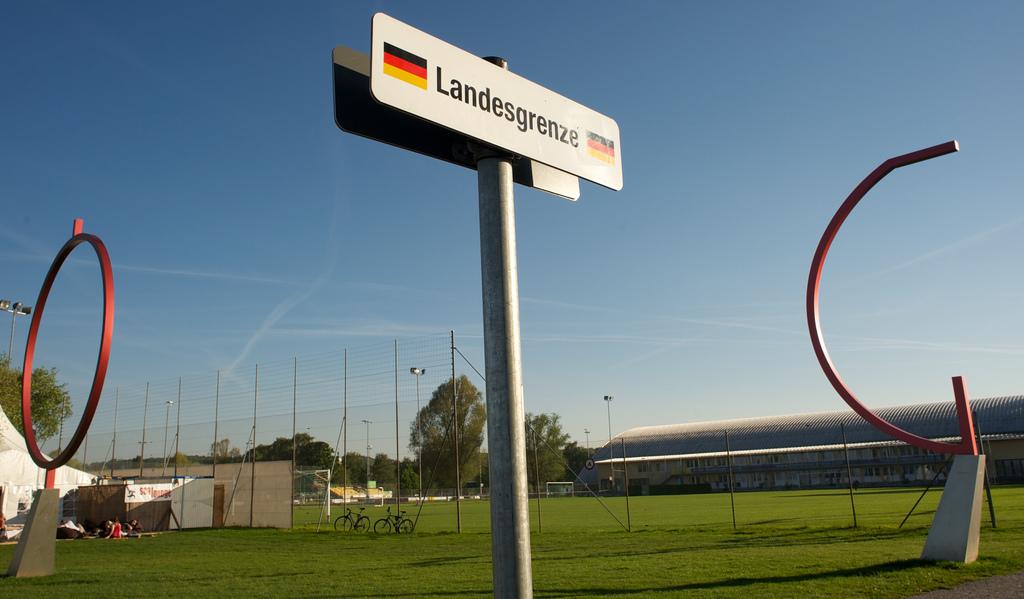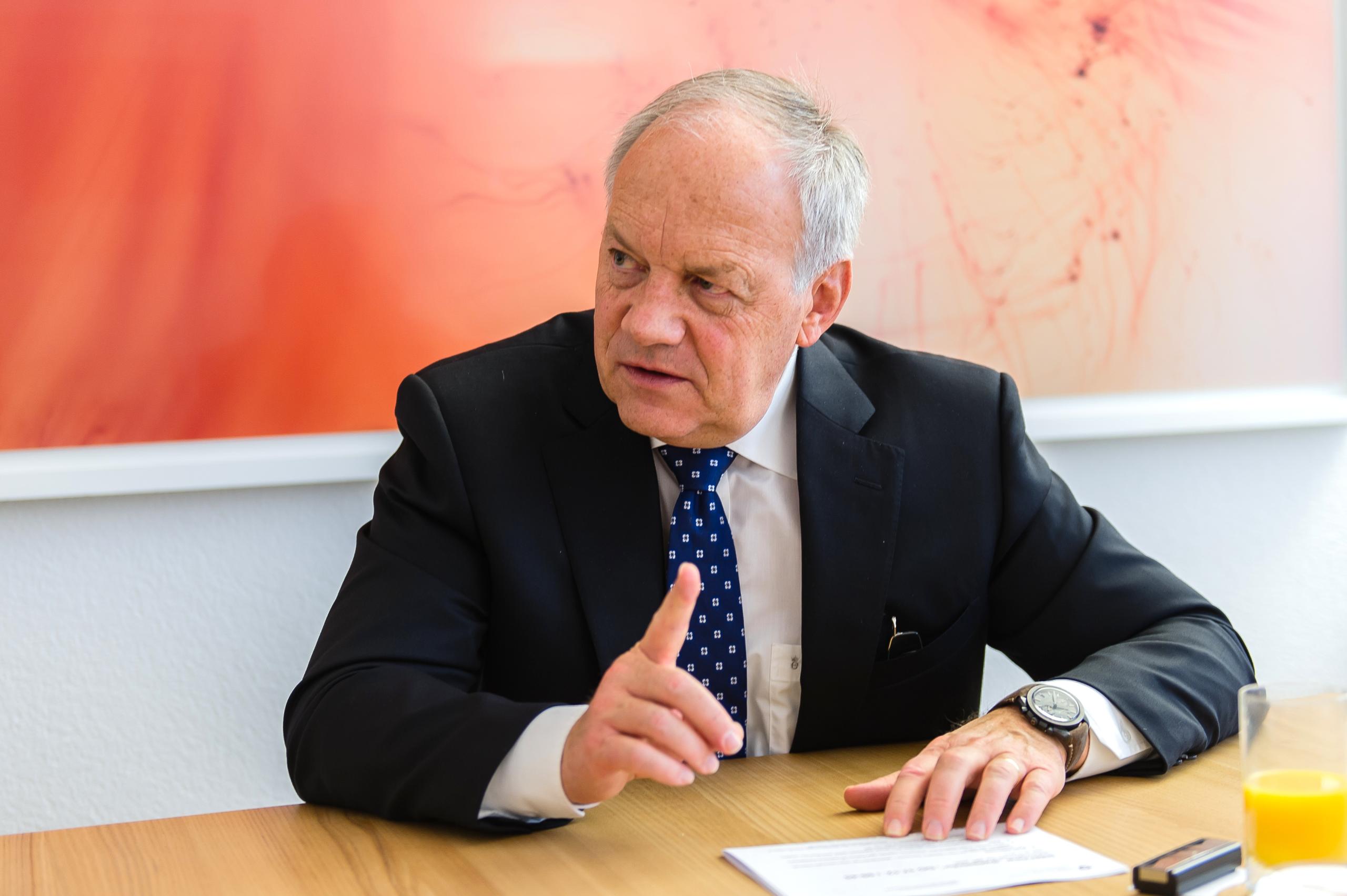EU relations become a priority for Swiss foreign policy

Fixing its relationship with the European Union is one of the main priorities of Switzerland’s foreign policy over the next three years.
The government set out four key goals it wants to achieve in a policy document unveiled on Wednesday, and gave special mention to the Swiss abroad.
The cabinet said there is growing demand for services provided by the foreign ministry for the Swiss abroad, that’s 761,930 people.
A new way for the Swiss to register in another country, ‘eVera’ will be up and running by mid-2016. This is one way the cabinet said they are meeting the needs of a more mobile Swiss populous, stating that they are “continually adapting” the consular services offered outside of Switzerland.
Neighours
In a statement published on the cabinet’s website, it said that relations with member states of the 28-nation EU bloc and the European Free Trade Association (EFTA) – Norway, Iceland and Liechtenstein – should be “consolidated”, and noted that a “well-regulated” and “expandable relationship” is what the Swiss are looking for with the EU in the years leading up to 2019.
Particular weight was given to relations with neighbouring countries: Germany, France, Italy and Austria.
It recognised the importance of working with the EU block in terms of prosperity and security, but also acknowledged that good relations were needed in a “wide range of policy areas”.
However, it is not just the EU that Switzerland wants to foster closer relations with. The alpine nation also wants to get along better with other multi-state organisations such as NATO or the G20, even though it is not a member.
The strategy acknowledged that Switzerland must be more involved, given the position that these groups hold in the world, and their importance for politics and the economy.
Mediator
Seen traditionally as a mediator among nations, the Swiss want to make more of their reputation in conflict resolution in future, and use their position to affect peace and security on an international level.
This is partly to protect their export-based economy, the strategy added, as Switzerland depends on a “stable environment and a just international order”.
The foreign policy strategy additionally wants to continue to push in areas of international co-operation where the Swiss can offer their expertise – priority will be given to vocational education and training and community development.

In compliance with the JTI standards
More: SWI swissinfo.ch certified by the Journalism Trust Initiative



You can find an overview of ongoing debates with our journalists here. Please join us!
If you want to start a conversation about a topic raised in this article or want to report factual errors, email us at english@swissinfo.ch.